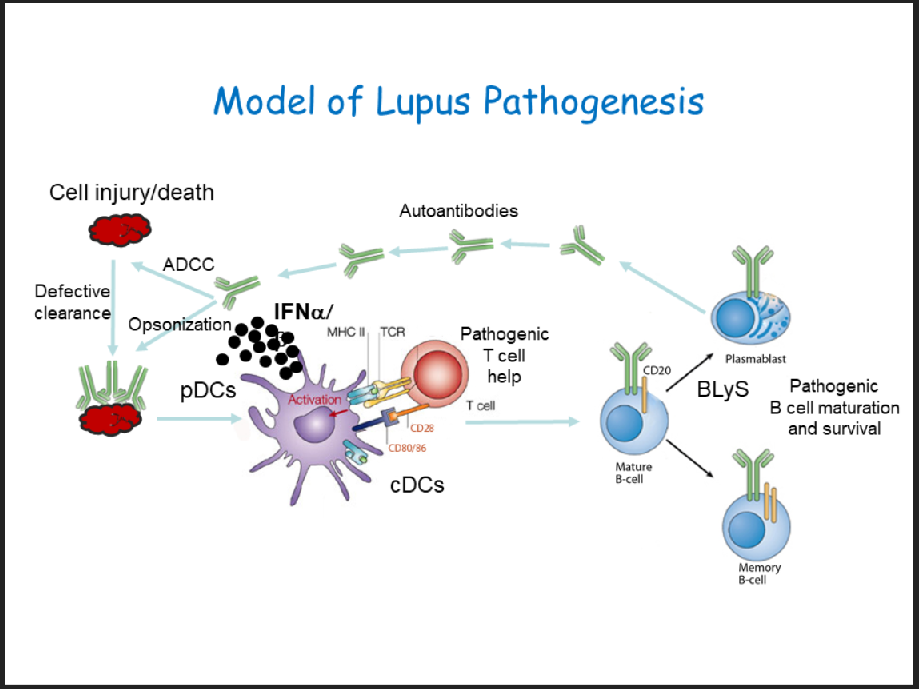The Rifkin / Bonegio Lab aims to understand the pathobiology of systemic lupus erythematosus and lupus nephritis with the ultimate goal of identifying new therapeutic targets. Lab uses mouse models and in-vitro-systems as well as human cells and patients samples. Projects in the lab focuses on understanding the mechanisms and signaling pathways for the dendritic cell activation and determining the role of interferon regulatory factor 5 (IRF5) in lupus pathogenesis. In addition, the lab also collaborates with scientists in molecular cardiology and uses a novel mouse model to study the mechanisms of premature atherosclerosis seen in lupus.
Five selected publications:
1. Yasuda K et al. Requirement for DNA CpG content in TLR9-dependent dendritic cell activation induced by DNA-containing immune complexes. Journal of Immunology, 2009. PMID: 19648272
2. Richez C et al. IFN regulatory factor 5 is required for disease development in the FcgammaRIIB-/-Yaa and FcgammaRIIB-/- mouse models of systemic lupus erythematosus. Journal of Immunology, 2010. PMID: 20007534
3. Watkins AA et al. IRF5 deficiency ameliorates lupus but promotes atherosclerosis and metabolic dysfunction in a mouse model of lupus-associated atherosclerosis. Journal of Immunology, 2015. PMID 25595782
4. Aprahamian TR et al. The immunomodulatory parasitic work product ES-62 reduces lupus-associated accelerated atherosclerosis in a mouse model. International Journal of Parasitology. PMID: 25666929
5. Duffau P et al. Promotion of inflammatory arthritis by interferon regulatory factor 5 in a mouse model. Arthritis Rheumatology, 2015. PMID: 26315890
